Is a ‘burka ban’ really necessary in Switzerland?
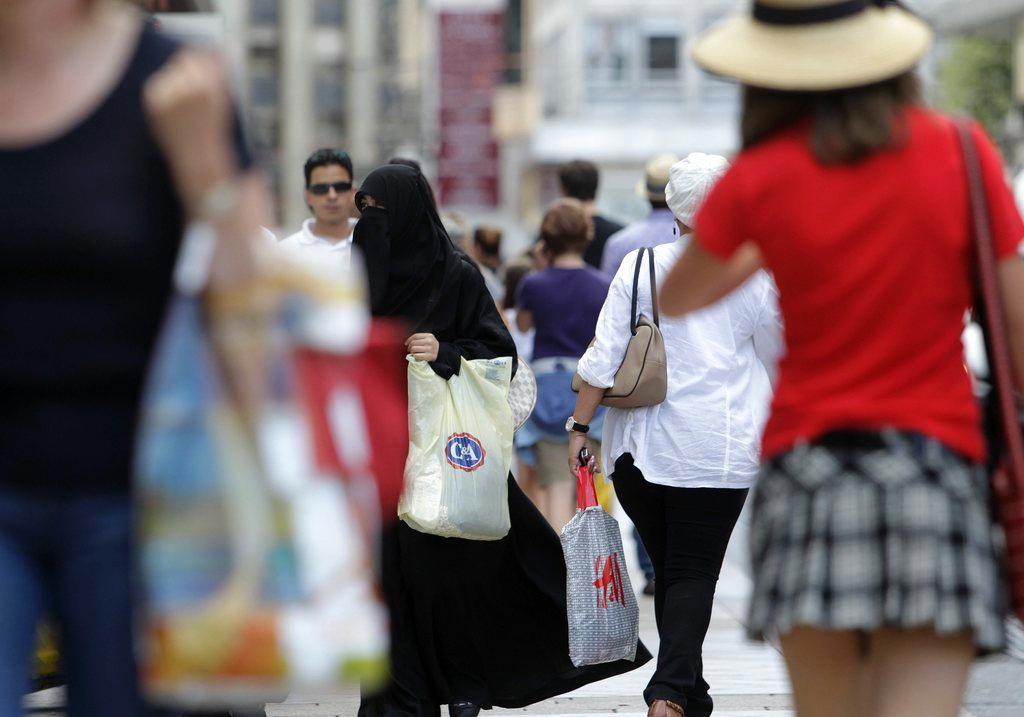
Several European countries have banned in public places the wearing of veils or any kind of clothing that hides the face. Now supporters of a people’s initiative want to do the same throughout Switzerland. Two parliamentarians debate the issue.
The initiative, supported by a group of mostly conservative right Swiss People’s Party politicians and activists, was presented at a news conference in Bern on Tuesday. The committee was behind the ban on building new minarets, which was passed in a nationwide vote in 2009.
Walter Wobmann, a parliamentarian for the People’s Party and a member of the initiative committee, says Switzerland is threatened by an Islamicisation. He wants a ban on people covering or hiding their faces in public – whether for criminal or religious reasons – to be written into the federal constitution.
Their text was inspired by a similar initiative passed by 58% of Ticino citizens in 2013 banning people from covering or hiding their faces in public. The Ticino ban also forbade an individual from forcing someone to cover their face due to their sex.
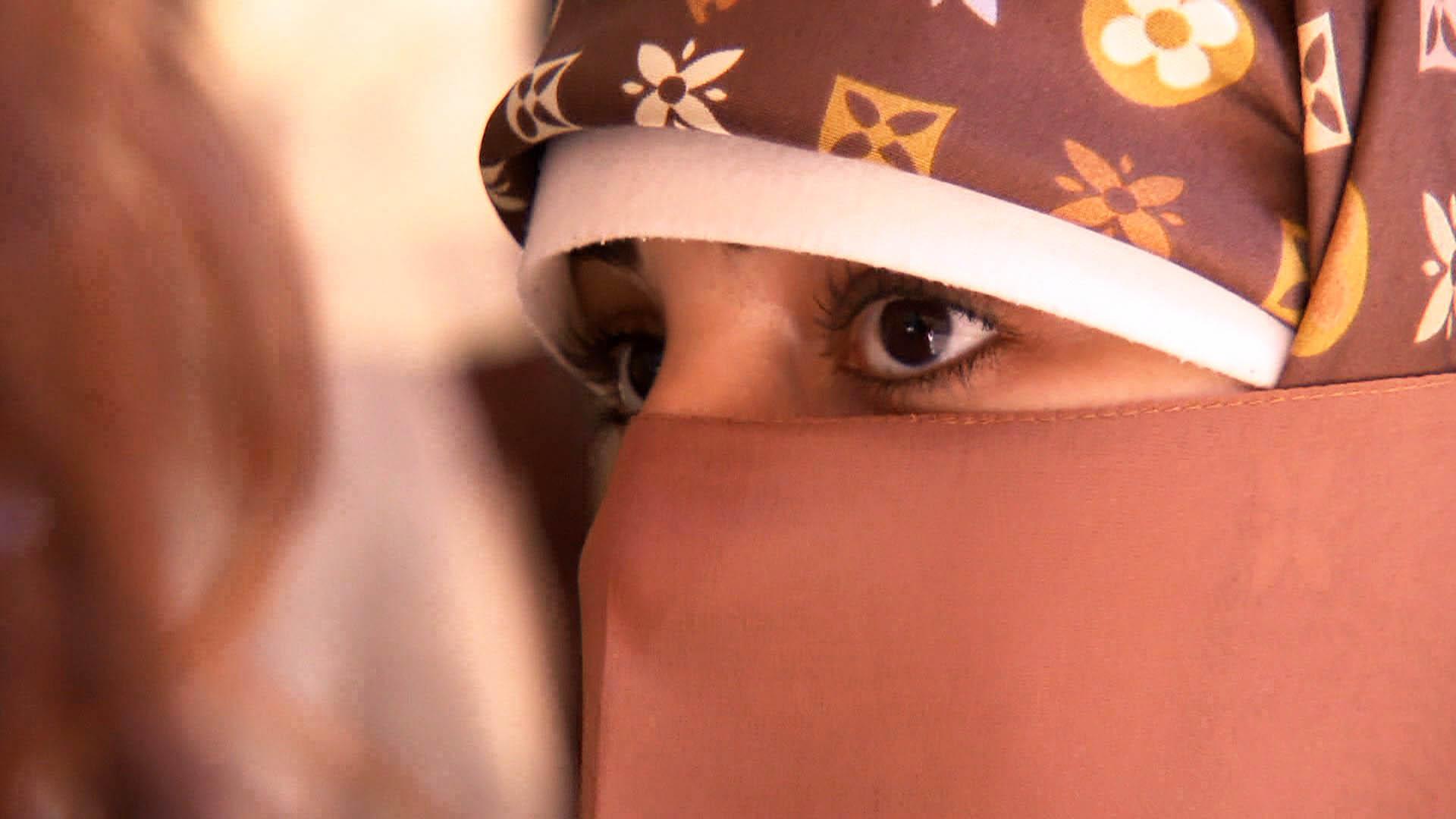
More
Ticino as a test case for a burka ban
Exceptions to the ban were made for health reasons (hospital masks), safety (motorbike helmets), weather (ski masks) or for local festivals (traditional masks).
Alec von Graffenried, a former parliamentarian for the leftwing Green Party and president of Bern Tourism, is against the initiative on the grounds that it discriminates against an entire religious community.
swissinfo.ch: Walter Wobmann how many burka or niqab-wearing women have you encountered in Switzerland?
Walter Wobmann: A lot already, and above all more and more. And if this is something that we do not want, we must establish clear rules now, and not when there are already a lot here.
swissinfo.ch: What thoughts did these encounters provoke in you?
W.W.: That this is not part of our culture. Here, people show their faces. There’s no place here for covering the face. But it’s also about security. With regards to terrorist attacks, someone could hide themselves very well under this clothing.
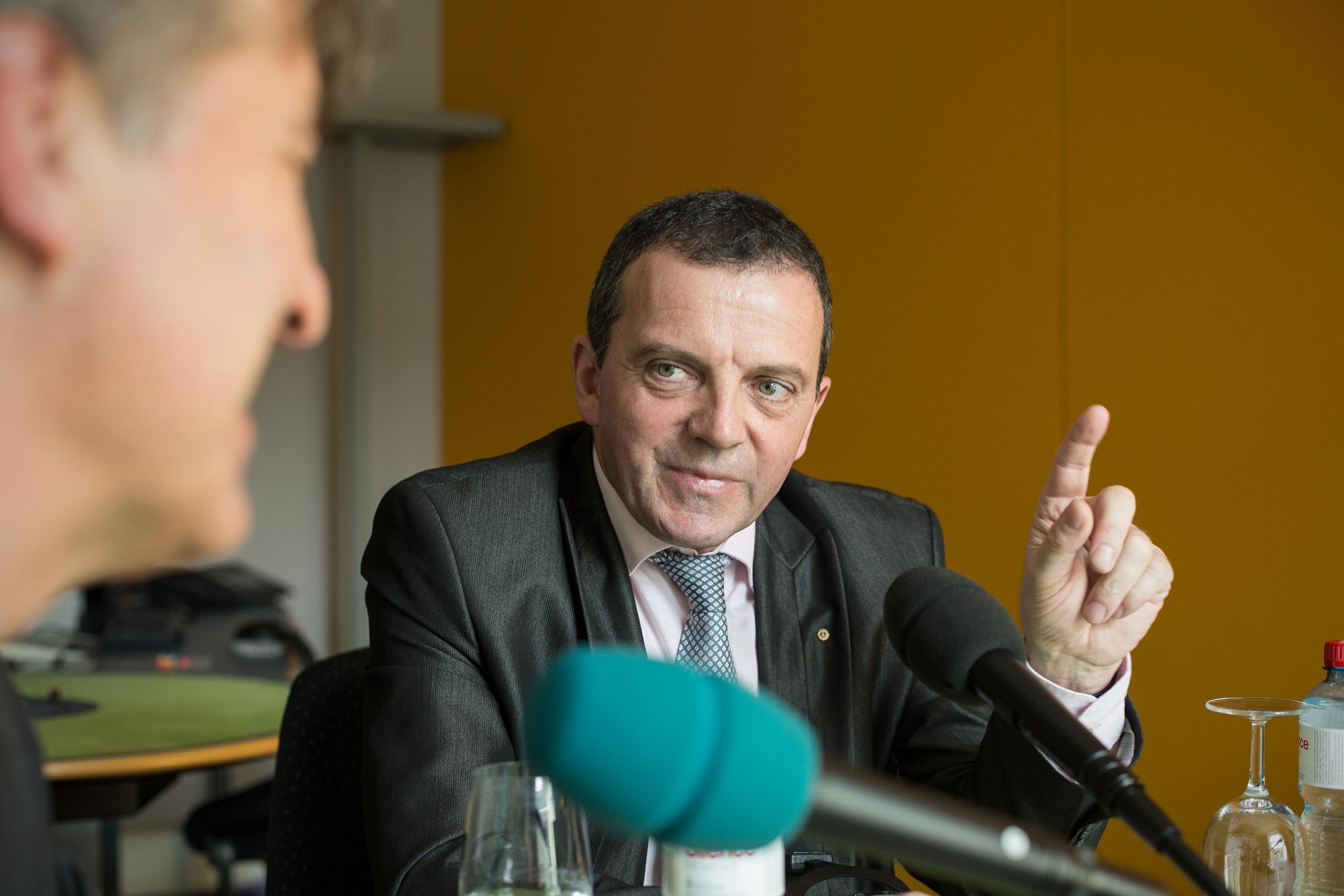
swissinfo.ch: According to estimates there are about 150 to 300 people living in Switzerland who wear a burka or niqab. So this is a marginal phenomenon. Are you not feeding into Islamophobia with this initiative?
W.W.: Absolutely not. Muslims have been able live their faith here for decades; you don’t need a burka or niqab or minaret for that. Even many Muslim people agree with me. They want the Swiss to resist this development, because they themselves are afraid to do so.
swissinfo.ch: Alec von Graffenried are those who support this initiative hostile to Islam?
Alec von Graffenried: I am not of the opinion that a burka is part of our culture. But I live in the city of Bern, and in the past three years I’ve never seen a burka. I come into contact with the burka on the posters of the Swiss People’s Party, but not in everyday life. The question of the initiative is intertwined with the question of discrimination.
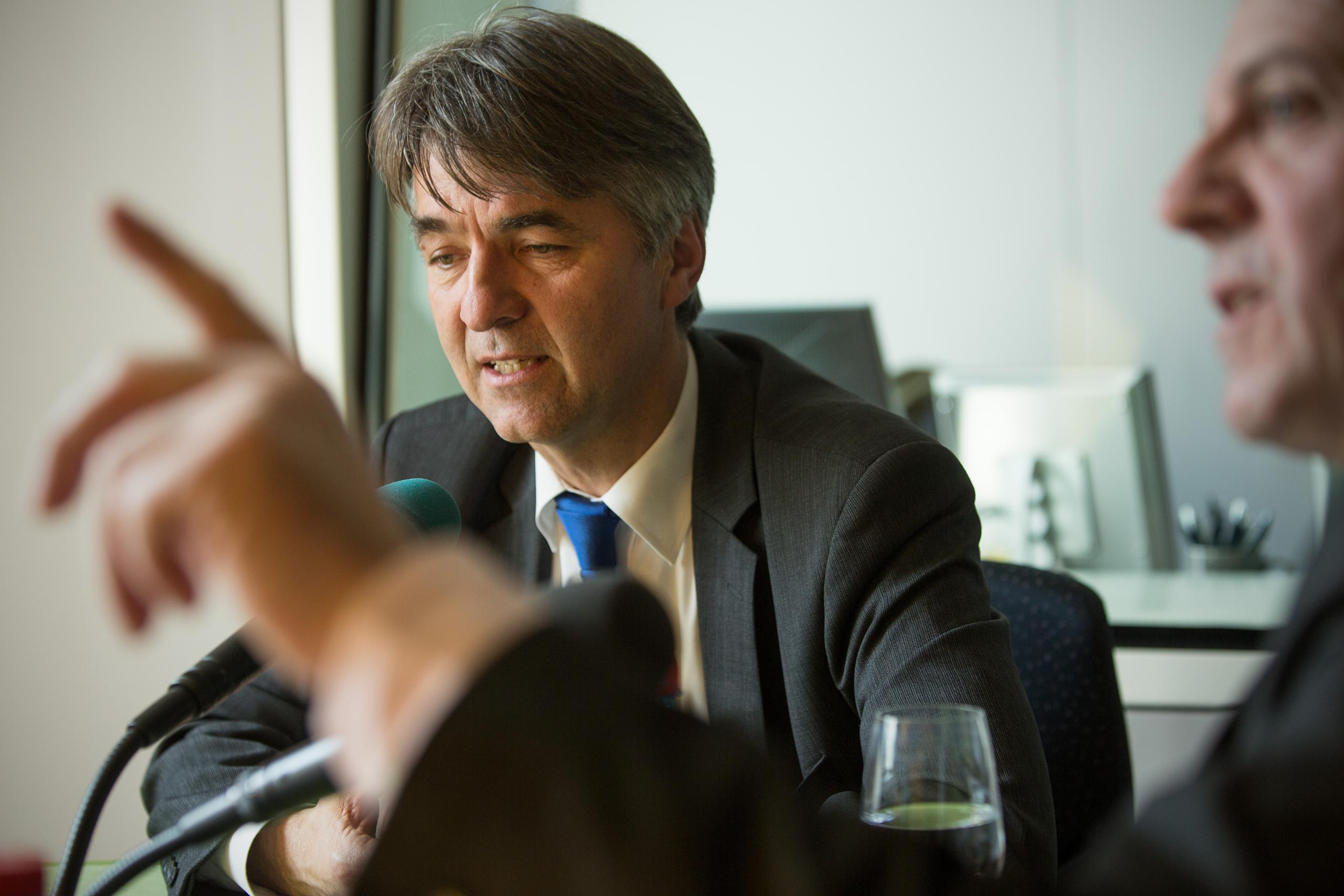
swissinfo.ch: Tourists from Arab countries are becoming increasingly important for Swiss tourism. They’re already the third largest group of visitors in the Interlaken region. The director of Interlaken Tourism says that the burka initiative would be fatal for tourism. You’re the president of Bern Tourism. Do you share your colleague’s view?
A.vG.: When such discriminatory initiatives are launched, this has an impact on the perceived hospitableness of a country.
W.W.: I almost have to laugh. Earlier, I heard that it’s about a few veiled women. And now it’s supposedly absolutely decisive for tourism.
A.vG.: It’s not about the fully veiled women who would then no longer come. It’s about an entire religion being affected and a diminishing of their freedom as a result of the initiative, due to an alleged problem that doesn’t even exist.
W.W.: This is exactly the same argument we heard about the vote on the minaret initiative. In fact, no one in the Arab world was interested in this initiative. On the contrary, these people work together with us even more so now. We seem to also seem to have more and more tourists.
Minarets, burkas and niqabs are typical symbols of radical Islam that no one wants here.
A.vG.: That definitely does not apply to minarets.
W.W.: It does! I’ve studied Islam. These are symbols of power of the Islam now raging in North Africa and the Middle East.
Here we can take a stance. Other European countries have also done so. In their cities above all Islamisation is far advanced. There are so many completely veiled women there that it would be almost impossible to implement a burka ban. It should not get so far here.
A.vG.: If there’s absolutely no longer a problem with the minaret initiative, that’s because – thank God – people have somewhat forgotten about it. There were only two or three minarets in Switzerland before that initiative. But if a religious community is told that their symbols are not wanted, then this is an unfriendly act towards that religion. And then members of this religious community feel attacked.
W.W.: What spurred the minaret initiative were five planning applications for additional minarets.
swissinfo.ch: Back to the ban on face coverings. How do you judge the signal sent by our tourism industry when they work to attract well-heeled visitors from these countries and then cater to them for large sums of money in expensive hotels – also if they are fully veiled?
W.W.: Naturally, it’s not just about tourism. If I had to choose between the core values of our country and a few francs, I would very clearly choose our core values. But the effects of a burka ban on tourism are exaggerated. The wealthy people from those countries are above all simply not interested.
A.vG.: The burka ban is a wrong answer to a question that does not exist. Right now we have no problem with burka-wearers.
swissinfo.ch: As a host, how do you communicate with a veiled guest whose face is fully covered?
A.vG.: I am not a supporter of the full veil. If a passport photo is required somewhere, obviously someone cannot refuse to have it taken on the grounds that they are not allowed to show their face for religious reasons. But by the same token that does not mean we have to introduce a general burka ban and by doing so thus snub a religious community.
swissinfo.ch: You’re usually an advocate of equality. Doesn’t it bother you that these women are not allowed to show their faces?
A.vG.: This question should be discussed, but in a differentiated manner. To what extent does religious freedom compromise individual freedom? And how can you give the members of a religious community an opportunity to free themselves from authoritarian family structures, if they wish to do so?
But in that case we don’t need to talk about the burka ban, but about other measures. What values are important to us? For example, education would be such a value. I would not support someone being excluded from participating in swimming lessons on religious grounds. Swimming lessons are part of integrating into society.
W.W.: Those who veil themselves completely don’t actually have any interest in integrating. And it is this way of life that I will not tolerate here, because it endangers the free and democratic social system.
swissinfo.ch: The free and democratic social system also guarantees freedom of religion. But according to human rights organisations a burka ban does indeed violate the freedom of religion.
W.W.: That is just not true. The European Court for Human Rights Court in Strasbourg in fact upheld the French burka ban…
A.vG.: I’m glad to hear the Human Rights Court praised for once by Walter Wobmann.
W.W.: I’m allowed to refer to it sometimes…
A.vG.: …selectively, from case to case.
W.W.: The court is indeed mostly against Switzerland. But in this matter it decided clearly.
swissinfo.ch: Did you launch your initiative in the interests of oppressed women in Arab countries?
W.W.: No, it was launched for more general reasons. I do not want to meddle in the Arab world. But we don’t have this way of life here. And I don’t understand why politicians who are green and on the left are now defending the burka.
A.vG.: I am not defending the burka. I often ask myself the question whether these women are veiling themselves completely voluntarily.
swissinfo.ch: And what is your answer?
A.vG.: There is no one answer to this question. It’s important that access to education is free, and that the free choice of religion as well as all other civil rights and liberties are guaranteed.
swissinfo.ch: Is not it contradictory to speak about human rights with reference to the burka? Aren’t prescriptions to fully cover oneself themselves a violation of human rights?
A.vG.: There are women who say that they have freely chosen to dress in this way. And for these women it would be a restriction were this to be forbidden.
“Per length of stay, the Arab tourists spend the most money. Therefore, we don’t want to cause affront to these people,” warned Stefan Otz, director of Interlaken Tourism. “We market heavily to the Arab world.”
Visitors are from Arab countries are the third most important group of visitors to Interlaken, behind the Swiss and the Chinese. “If there are indications that they may not be able to move around here in the manner they’re accustomed to, they’ll stop coming. That would be fatal.”
Prohibitions against full-face coverings, including the burka and niqab, exist in France, Belgium and Italy. Spain and the Netherlands are planning similar laws.
Voters in the Italian-speaking canton of Ticino in 2013 approved a ban on face coverings in public spaces, including veils worn for religious reasons.
In the canton of Zurich, conservative politicians want to extend the ban on full-face head coverings to Muslim women. Should their parliamentary initiative fail, they are planning to launch a people’s initiative.
According to a ruling by the European Court for Human Rights in July 2014, the French law prohibiting full-face coverings in public spaces is consistent with the Human Rights Convention.
The burka is the strictest interpretation of this religious dress prescription. It covers the entire body from the top of the head to the feet and is worn in Afghanistan. There is a grille or mesh window of cloth or horsehair over the eyes for women to see out of.
The niqab is a face veil covering the hair, neck, and face, but not the eyes. The niqab is worn mainly by women from the Gulf states, but also in other countries.
The hijab is a scarf covering the hair and neck but not the face. In some regions it is worn in combination with a niqab.
Translated from German by Kathleen Peters

In compliance with the JTI standards
More: SWI swissinfo.ch certified by the Journalism Trust Initiative











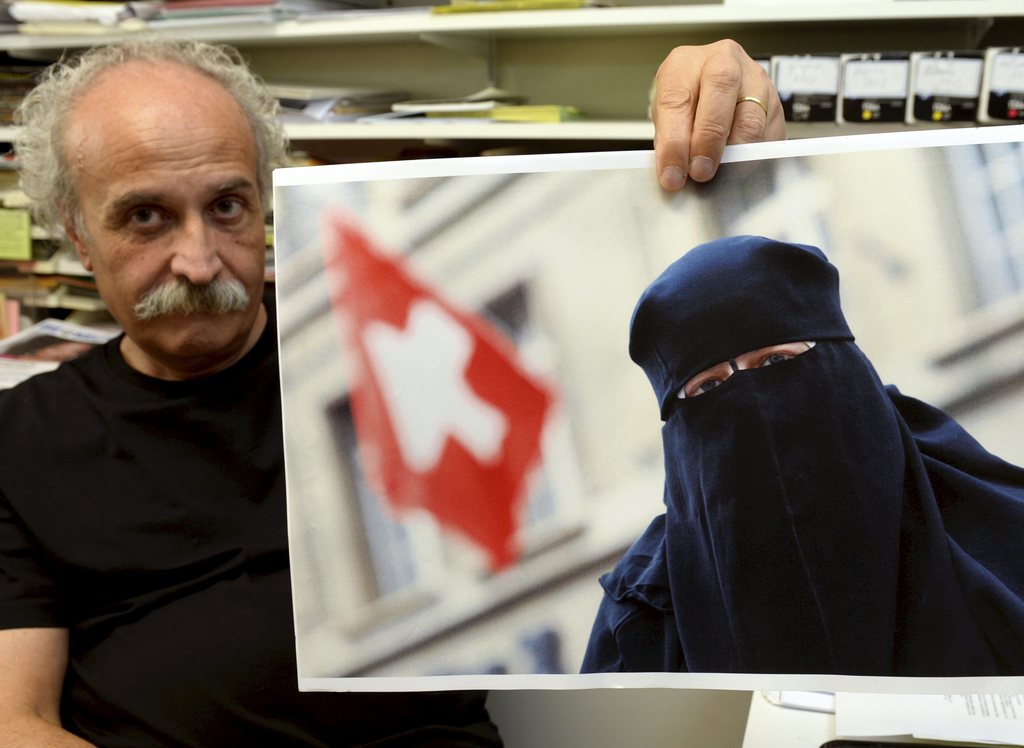
You can find an overview of ongoing debates with our journalists here . Please join us!
If you want to start a conversation about a topic raised in this article or want to report factual errors, email us at english@swissinfo.ch.